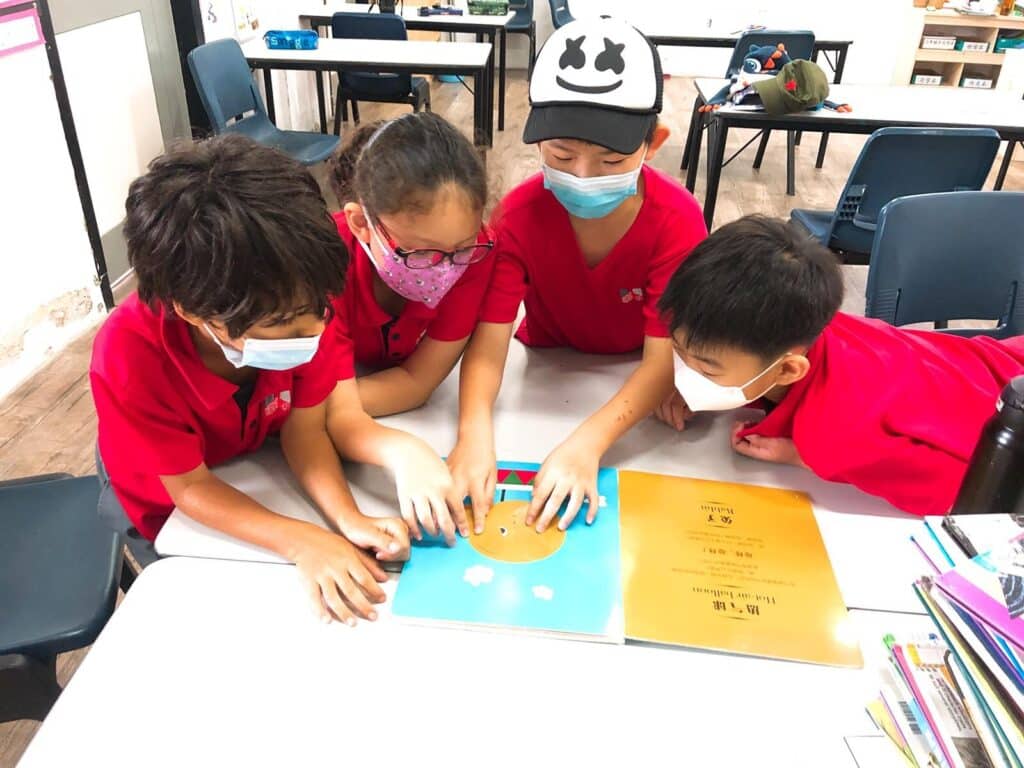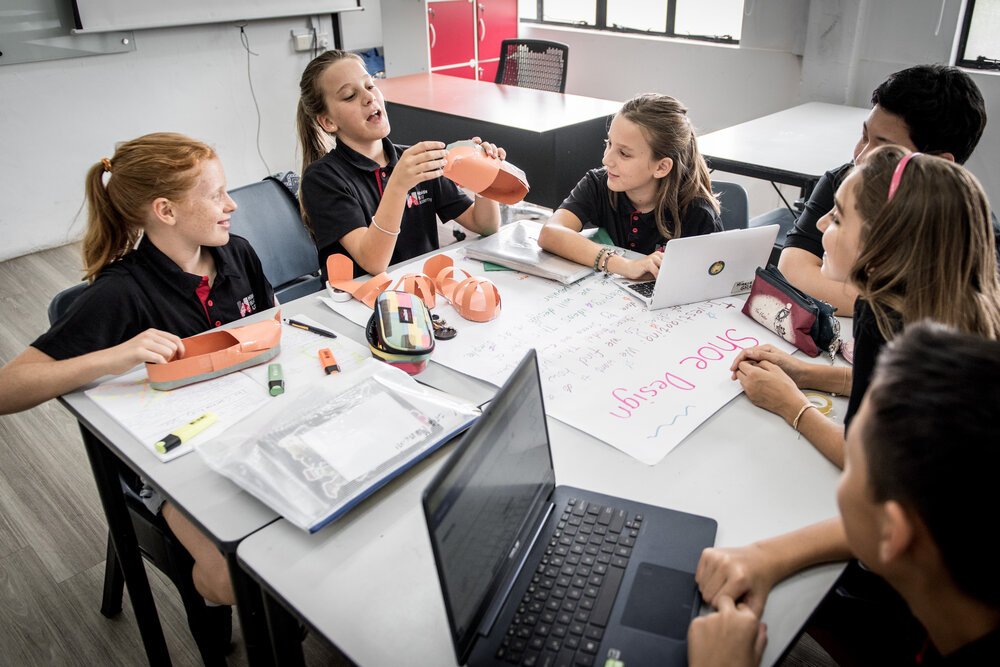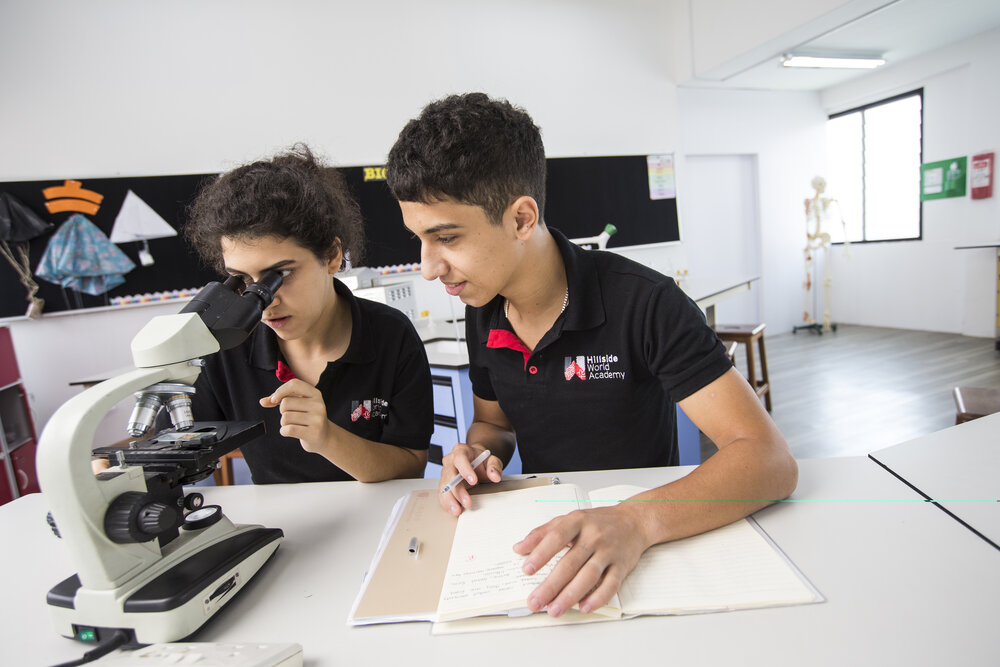
When parents talk about education and its meaning, what they really want to know is not just the extent of knowledge that they will receive, but more of how their child can be better learners and eventually become leaders in a globalised world.
Established in 1968, the aim of the International Baccalaureate remains unchanged to this day. By going beyond the textbook and classroom setting, they aim to develop inquiring, knowledgeable, and caring young people; who can help to create a better and peaceful world through intercultural understanding and respect.
Prevalence Of IB In Singapore
The International Baccalaureate Programme is offered by global international schools across the country, ensuring well-rounded and holistic education for children of the expatriates’ community. Since Singapore is home to over 110,000 expatriates and 7,000 multinational companies, the IB programme is highly applied and is the most common curriculum for global citizens here.
The International Baccalaureate (IB) programme is renowned for its high academic standards and its aim in developing global 21st-century citizens. With its famed reputation, the IB Programme is in demand by aspirational parents who want a western-style education for their children. Most parents in China believe that enrolling their children in an international school can increase their opportunities in terms of future college admissions. In 2020, Singapore accounted for 35 out of the 69 perfect scorers across the globe and an overall 96.6% pass rate. The exemplary performance and track record of IB graduates in Singapore has made it one of the main reasons why Chinese expatriate parents are looking to enroll their children in the international programme.
Part II: The IB Journey In Singapore
2.1 The Early Years Programme
The Early Years Programme is part of the IB Primary Years Programme (PYP) in Singapore. It is considered the ideal first step into the world of international education and is most often offered to children between ages 3 to 6. An innovative learning environment is being customised to meet the unique needs of each learning child.

Because the kindergarten age is a crucial time of development for many children, many international schools believe in laying a solid foundation during these years. This ultimately holds the child in good stead for later learning especially for the upcoming Primary Years Programme. Most global international schools in Singapore adopt a child-centered approach, allowing each child the opportunity to drive their learning and follow their interests. Through these learning opportunities, your child will be able to develop their key strengths and abilities, whilst engaging in play-based experiences to make connections with what they already know. They are also encouraged to ask questions, and understand more about society as well as the world around them.
Benefits Of Sending Your Child To A Kindergarten

Ideally, kindergarten not only sets the stage for the rest of your child’s education but also provides a smooth transition to the IB primary school curriculum. Here are three benefits of sending your child to an international kindergarten.
1. The development of self-esteem
Kindergarten aids in the development of self-esteem in children. As children start learning about the world around them through reading and interaction with the people in their lives, their self-esteem increases. This makes them feel good about themselves and eventually, the child ends up being confident in their ability to tackle the challenges of learning.
2. Learning how to cooperate
Children in kindergarten are taught how to cooperate through learning, working, and getting along with others. Through the early years programme, the interaction with other children provides your child with the opportunity to learn patience as well as the act of sharing and listening to others – all of which are social and emotional learning skills that will stay with your child throughout their school years and beyond.
3. Encouraging curiosity
Most children are naturally curious, however, because they are still young, they do not know how to focus or use this curiosity. Hence, kindergarten provides the perfect opportunity for each child to direct their curiosity and discover a natural love for learning. Aside from that, having curiosity tends to make learning more effective and enjoyable, enabling them to seek out answers to better understand the world around them.
2.2 The Primary Years Programme
The Primary Years Programme offered by IB primary schools in Singapore aims to provide a holistic approach towards building a solid foundation for the primary years of a student’s life. Children between the ages of 6-12 years are eligible to attend the IB PYP offered by many global international schools in Singapore.
Focusing on an inquiry-based transdisciplinary curriculum, the PYP equips and builds conceptual understanding in all its students. Together with the rapid changing of times, the PYP has also adopted a student-centered approach to ensure each IB primary school graduate is well-equipped and prepared to face the potential challenges, as well as stepping up to the opportunities of the future world.
Following a continuum into the Middle Years Programme (MYP), the framework of the PYP curriculum is based on the students’ initiatives to take responsibility as well as ownership for their learning. Students are encouraged to be inquisitive and reflective of their learning. The programme also supports every student’s effort to gain an understanding of the world and to equip them with the skills to function effectively within it. In addition, the PYP also establishes in students personal values that act as a foundation in the development of international-mindedness.

Plus, themes are also selected for their relevance to the real world, and teachers often rely on these themes to develop a programme of inquiry. Combined with the high involvement of students, teachers often develop investigations into important ideas, ultimately providing each student with an outlet to express their curiosity and creativity.
Aside from the broad-based approach towards academics, there is also more emphasis being placed on core subjects such as English, Mathematics, Social Studies, and Science. In certain Chinese international schools in Singapore, such as HWA International School, students are also exposed to values and cultures from both East and West, eventually helping students gain a better understanding of their place and role as a global citizen of the world. As it is a requirement for students to attain effective bilingualism under the IB programme, most Chinese international private schools in Singapore make it mandatory for their students to learn both Mandarin and English, and PYP lessons are carefully planned to develop literacy and proficiency in both languages. By learning in this manner, students develop a deeper knowledge and understanding of their skills, ultimately making a difference in their own lives and communities.
Even though the PYP aids in preparing its graduates for the MYP in Singapore, it is not a prerequisite for it. Most IB international schools in Singapore that offer PYP will require their prospective students to sit for an entrance test or an interview to weigh their academic preparedness for the curriculum as well as decide an appropriate class and grade placement for the student.
2.3 THE MIDDLE YEARS PROGRAMME
The Middle Years Programme (MYP) offers a secondary level framework to students between age 12 to 16, that is equivalent to the International General Certificate of Secondary Education (IGCSE). Students enrolled in the MYP have the advantage of transitioning out of their primary years smoothly whilst preparing for further tertiary education. The only difference between the MYP and IGCSE is that individual examinations are not a part of the MYP curriculum. Instead, the MYP curriculum offered by IB schools in Singapore will see students being assessed regularly throughout the year.

Students in the MYP are provided with individualized attention through the small classroom settings, thus allowing them to thrive intellectually whilst improving their learning experience. Students are taught to make practical connections between the classroom settings and the real world. And from there, they become empowered with an inquisitive mindset to develop a deeper understanding of issues and ideas. Students end up graduating from the Middle Years Programme as creative and reflective thinkers, increasing their success rate in both their future studies and life. On top of just focusing on academic performance, they are also taught values such as embracing diversity and whole-school community spirit through activities outside of the classroom.
In terms of academic progression, the MYP curriculum organizes teaching and learning through eight subject groups, promoting interdisciplinary study to equip students with the ability to make important connections between them. Plus, with Integrated teaching and learning incorporated into the curriculum, they can analyse complex issues whilst developing the habits of mind required to participate in the increasingly interconnected and globalised world. In certain Singapore IB schools, students in Grades 9 and 10 are given the option to take courses from seven of the eight subject groups within certain limits so that they have greater flexibility in preparing for the IB Diploma Programme upon graduation. It is also mandatory for MYP students to complete a long-term project, in which they have to decide on the topic that they want to learn more about and create a proposal or criteria to show how they will be able to meet this goal.
2.4 THE IB DIPLOMA PROGRAMME JOURNEY

Upon graduating from the MYP, international high schools in Singapore offer the renowned IB Diploma Programme (DP) to students in Grades 11 and 12. The IBDP curriculum in Singapore is one that is well-recognized by many renowned and leading universities in the world, including those in the Ivy League. Through the DP, schools can develop students who have excellent breadth and depth of knowledge, thus allowing them to perform well physically, intellectually, emotionally, as well as ethically. Aside from that students also have to take a core subject known as Theory of Knowledge (TOK), which aims to equip students with the ability to critically analyze and reflect on the fundamentals of knowledge and learning.
But it is not just all academics! IBDP students in Singapore are also required to take up a course known as Creativity, Activity and Service (CAS). This course aims to enhance students’ personal and interpersonal development through experiential learning. Students are also given projects to help them develop initiative, perseverance, and social skills, such as teamwork and collaboration. Even though they are not being formally assessed, it is required of students to reflect on their CAS experience and provide evidence of achieving the seven learning outcomes. To graduate from the programme and be awarded the prestigious IB Diploma, students will need to sit for an internal and external assessment. With a scoring system from 1-7, and an additional 3 points being awarded for TOK essays and Extended Essay modules, the maximum score a student can attain is 45 points.

Did you know that in a study conducted in 2013, results have shown that over 72% of IBDP students in China ended up attending one of the world’s top 500 universities? Thanks to its rigorous and all-rounded curriculum, the IB DP is regarded as the ‘gold card’ in both global universities and colleges placement.
Part III: The Education Journey Offered By Local Curriculum
Aside from the IB journey that is being offered by international schools in Singapore, you can also enroll your child in the national curriculum. In Singapore, children are required to attend a series of compulsory education including six years of primary school, four years of secondary school, and one to three years of post-secondary school.
Under the national curriculum offered by local schools in Singapore, the Ministry of Education oversees the development of it and tailors it to the needs of children across the various stages of their education journey. The overall curriculum aims to ensure that the “Desired Outcomes of Education” are being met – these desired outcomes refer to excellence in life skills, knowledge, and subject discipline knowledge.
The primary school curriculum focuses on ensuring the students have a good understanding and grasp of the English language, respective Mother Tongue Language. Aside from these, students are also taught civics and moral education, pastoral care as well as science and social studies. The overall curriculum is designed to give children of school-going age a strong foundation in learning, whilst nurturing them to become better citizens in society.
After forty years of students being streamed into different bands, the Ministry of Education has replaced it with full subject-based banding. This means students can take up subjects at higher or lower levels based on their strengths. Core subjects at this phase include English, Mother Tongue Language, Mathematics, Science, as well as the Arts. Art subjects include history, geography, literature, craft, and design as well as home economics. Students are also required to continue in non-examinable subjects such as Physical Education (PE) while serving their extracurricular commitments. The subjects and modules offered in secondary education aim to shape a student’s path based on their strengths and interests.
When it comes to tertiary education, students can choose between a junior college or a polytechnic. For students who choose to go to a junior college, their life is almost the same as it was in secondary school. Students spend a large part of their time in school working on their “A” level subjects and are also required to complete interdisciplinary project work with the aim to promote collaborative problem solving, literacy, communication, as well as creative thinking skills.
For students who decide to embark on the polytechnic route, they will get a glimpse of university life through the coursework, modules, and internship placements.
Local Schools VS International Schools
We know looking for the perfect school for your child in Singapore is tough, especially with the wide range of choices available. So we have made it easier with this list of information comparing the two very different school systems.

1. Teaching Approach
The teaching style adopted by local schools is different from that of international schools in Singapore. Certain international schools follow the national curriculum of the country they are affiliated with, while others choose to take on the IB approved curriculum. The International Baccalaureate programme promotes inquiry-based learning while instilling independence and creativity in their students. The curriculum offered by local schools are not as individualised as the ones offered by international schools, and class sizes tend to have a larger student-to-teacher ratio. In the past, local schools placed more emphasis on academic excellence, however, in recent years the Education Ministry has shifted its focus to value-based and inquiry-based learning.
2. School Hours
Most local schools start very early at around 7:20am and finish at 2pm every afternoon from Monday to Friday. On the other hand, international schools tend to have longer days but that is because they are given more frequent and lengthier breaks.
3. Competitive Spirit
Local schools are known to be very competitive with parents at the helm of it, as they seek tutoring for their children in multiple subjects to secure an entry to the desired school. However, the local school environment is open to everyone without committing to this results-driven approach. Stressful as it might seem, students who are enrolled in the national curriculum may benefit from the competitive environment as it prepares them for the rigors of the real world. In comparison, most private schools in Singapore place a lot of focus on individualized learning, offering carefully tailored development plans that have been designed to stretch each student to the best of their abilities. By adopting this freedom to explore, being creative, and inquisitive helps define strong leadership qualities and problem-solving abilities.
4. Cost
Contrary to belief, the biggest difference between the two school systems is not the quality of education. Instead, it is the cost factor. Local primary school fees start at $5 per month for Singapore citizens and can go up to $780 for foreign students. International school fees in Singapore on the other hand are more expensive compared to local schools, and they can range from a few thousand dollars per month. And that does not include application fees, one-off registration fees, and even private school bus services!
Part IV: Holistic Benefits Of IB Programme
As the popularity of the IB programmes and their concept-driven approach to learning and teaching continue to rise, international schools in Singapore now follow strict admission criteria to determine the eligibility of their prospective students. Some international schools in Singapore follow a convenient and uncomplicated admission process where students, Grades 7 and above have to sit for an entrance test to determine their eligibility in coping with the rigorous curriculum.
As mentioned above, aside from academic progression, the IB programme also focuses on providing a holistic curriculum to its students to encourage them to become the finest versions of themselves.
Students are given a choice to participate in co-curricular activities such as sports and arts to build better relationships with their peers whilst gaining experience. Plus, expatriate students who live very far from school are also provided with the option to take up residence in the student accommodations provided in Singapore.

But it is more than just talk when it comes to grooming each student into a global citizen of the world. Some international schools in Singapore also encourage their students to make regular and committed connections with organizations such as orphanages and aged homes through voluntary work.
Part V: Conclusion
As challenging as the IB programme offered by international schools in Singapore may be, most Chinese parents will choose to send their child there due to the significant rewards and opportunities that they will reap in the future. On top of the child-centered and holistic value-based learning, graduates of the IB programme stand a higher chance of getting offered a position at prestigious colleges across the world. With so many options available for your child, at the end of the day, only you can decide whether an international or local school suits your child the best.
Established in 2006 as the Chinese International School in Singapore, HWA is forward-looking, contemporary and most of all, it is committed to providing a lifelong learning experience for all of its students.
Reach out to us to find out more or even book a campus tour with us today!


